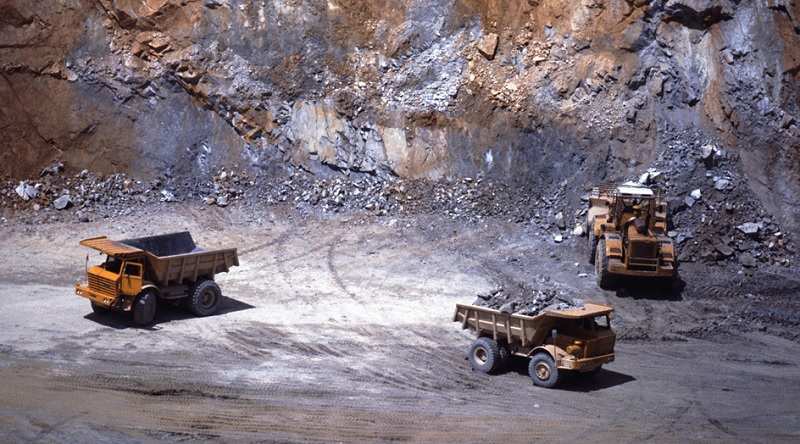Australia cuts iron imports from China but, demand will soar according to analysts

China’s imports of Australian iron ore, a leading indicator of the two nations’ commercial relationship, decreased about 3% last year as Beijing moved to cut steel output and carbon emissions.
Diplomatic ties have remained chilly in recent years on a variety of topics, including Australia’s desire for an investigation into the origins of Covid-19, but Australian exports to China – particularly iron ore – have kept the relationship from collapsing completely.
Exports peaked in 2020, when China’s post-Covid industrial rebound accelerated before slowing.
“We believe iron ore exports will continue to suffer in 2022 as China’s GDP growth stays sluggish and the Chinese construction industry struggles,” Capital Economics’ Ben Udy said after the Australian Bureau of Statistics announced updated trade statistics on Thursday.
“Iron ore prices should fall this year as a result of this,” the analyst noted, “which would put downward pressure on export values to China.” According to the most recent statistics from China customs, Australia sold 694 million tons of iron ore to China in 2021, down from 713 million tons in 2020. However, imports in 2018 were larger than the level of 665 million tons in 2019.
While China’s demand for iron ore had been strong for years due to continuous economic growth, last year’s steel production cuts, pursuit of emissions reductions, crackdown on debt and growth in the property sector, also known as the “three red lines,” and a power supply shortage demonstrated that there were numerous factors that could threaten demand, putting major dependent suppliers like Australia and Brazil on high alert.
Last year, China’s total iron ore imports dropped 3.4 percent to 1.13 billion tons, matching a lower steel output of 1.03 billion tons, down from 1.065 billion tons the year before, according to figures from the National Bureau of Statistics and China Customs.
According to Navigate Commodities managing director Atilla Widnell, China’s measures to safeguard its economy in the immediate term, despite a persisting Covid-19 outbreak and slower economic development, should somewhat buffer any drop in steel output and emissions, which were longer-term targets.
The amount of liquidity China is pumping in this year will result in roaring iron ore demand in the second half of the year
Atilla Widnell
Widnell said Beijing’s most recent informing – specifically Beijing’s rollover of Special Purpose Bond issuances to finance development and foundation ventures and Chinese Premier Li Keqiang’s promise to bring down duties to help enterprises confronting troubles – showed decreases in iron mineral imports would be suppressed for this present year.

“Iron mineral imports were just a little prod lower, and how much upgrade and liquidity China are siphoning in this year will bring about thundering iron china ppgi steel coils metal interest in the last part of the year,” Widnell said. “The Chinese government has as of now played their hand for 2022: economy over climate.”
Without a doubt, China has reported it would make modern development its first concern this year, and consequently “eradicated steel yield cut necessities in its 2022 decarbonisation strategy”, wares investigator S&P Global Platts said in a note.
China’s property improvement log jam would proceed however it would be offset by more interest for steel in the steadier assembling area, Platts said.
“China’s steel costs saw an exciting ride in 2021 inferable from compulsory steel yield cuts pointed toward diminishing the area’s fossil fuel byproducts. Markets are relied upon to see less unpredictability in 2022 as comparable extreme result slices are probably not going to [occur] this year,” it said.
China is the world’s largest steel producer and consumer. It is also the world’s largest producer and consumer of iron ore.
The demand for steel in China has been increasing steadily in recent years. The country has been investing heavily in infrastructure projects, which are driving up demand for steel. China’s demand for iron ore imports has also increased along with the country’s economic growth, but it still depends on imports for many of its raw materials.
China is the world’s largest steel producer and consumer. It is also the world’s largest producer and consumer of iron ore. The demand for steel in China has been increasing steadily in recent years, which has driven up imports of raw materials such as iron ore to meet production needs.
China, the most populous country in the world, is also the world’s most populous country. It is a one-party state ruled by the Communist Party of China.
The country has been an emerging global power since the 1990s with its rapid economic growth and substantial military capabilities. China is a nuclear weapons state and has the world’s largest standing army with an estimated active personnel of 2.3 million personnel, along with an additional 1.7 million active reservists.
China has been characterized as a potential superpower by some analysts, while other commentators believe that economic conditions make it unlikely for China to ever compete against long-established superpowers like United States or Russia
China, often called the ‘world’s factory’, is the world’s largest producer of steel. Steel production in China is dominated by state-owned enterprises (SOEs), which are responsible for 90% of China’s steel production.
Iron ore is a commodity that is used to produce steel. Iron ore demand has been increasing in recent years due to increased global economic growth and steel production. The price of iron ore has also gone up in recent years, due to increased demand and limited supply.
Bulk cargo ships are typically used for transporting iron ore from mines to the point where it can be processed into steel products for construction purposes. Bulk cargo ships transport two types of bulk goods – bulk cargo and break bulk cargo. Bulk goods are large items that can’t be
China is the world’s largest producer of steel and iron ore. In 2016, China produced 803 million metric tons of steel and 266 million metric tons of iron ore. The country has a huge demand for bulk cargo, which is why it has been a major importer of bulk goods from various countries.
